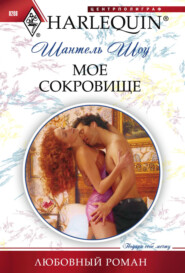По всем вопросам обращайтесь на: info@litportal.ru
(©) 2003-2025.
✖
Rags To Riches: Her Duty To Please: Nanny by Chance / The Nanny Who Saved Christmas / Behind the Castello Doors
Автор
Год написания книги
2019
Настройки чтения
Размер шрифта
Высота строк
Поля
She hardly left them; Nel relieved her when she had a meal, and offered to sit with them while she went out for a while, but Araminta, with Bas translating, assured her that she was fine and that when the doctor came home she would have an hour or two off.
She was reading The Lion, the Witch and the Wardrobe when he walked into the room. He sat down on Paul’s bed and didn’t speak for a moment.
‘I see Paul’s feeling better; what about Peter?’
He could at least have wished her good evening or even said hello.
‘He’s feeling off colour, and he’s been very good—they both have—and they’ve taken their drinks like Trojans. Jet is making them jelly for supper.’
‘Splendid. Go and have a stroll round the garden, Miss Pomfrey, and then have dinner.’
‘I’m perfectly…’ she began.
‘Yes, I know you are, but kindly do as I say.’ He said something in Dutch to the boys, and they managed to giggle despite the mumps.
Araminta went. First to her room to get a cardigan, and to take a dispirited look at her reflection. There seemed no point in doing more than brushing her hair into tidiness and powdering her nose; she went downstairs and passed Humphrey on his way up to join his master. She would have liked his company as she wandered to and fro in the garden.
It was growing chilly and she was glad of the cardigan and even more glad when Bas came to tell her that dinner would be ready in five minutes.
It was a delicious meal, but she didn’t linger over it. The doctor would need his dinner, too, and probably he had plans for his evening. It was Bas who insisted that she went to the drawing room to have her coffee.
Sitting by the cheerful fire presently, with the tray on a table beside her, she felt at peace with everyone…
She was pouring her second cup when she heard Bas admit someone. A minute later the door was thrust open and Christina Lutyns pushed past him and came into the room.
Araminta put the coffeepot down carefully. Her polite ‘Good evening, Mevrouw,’ went unanswered, though.
‘Why are you sitting here in the drawing room? Where is Dr van der Breugh? Why aren’t you looking after the children?’
Araminta didn’t need to answer, for the doctor had come into the room. His ‘Dag, Christina,’ was uttered quietly, and he smiled a little. ‘Miss Pomfrey is taking a well-earned hour or so from her duties. The reason she is not with the children is because she has been with them almost constantly since the early hours of today. They both have the mumps.’
Christina gave a small shriek. She lapsed into Dutch. ‘Don’t come near me; I might get them too. And that girl sitting there, she shouldn’t be here; she should stay with the boys. I shall go away at once.’ She contrived to look tearful. ‘And I was looking forward to our evening together. How long will they be ill?’
‘Oh, quite a while yet,’ said the doctor cheerfully. ‘But both Miss Pomfrey and I have had mumps as children, so we aren’t likely to get them again.’
‘I shall go,’ said Christina. ‘When there is no more infection you will tell me and we will enjoy ourselves together.’
She went then, ignoring Araminta, escorted to the door by the doctor who showed her out, taking care, at her urgent request, not to get too near to her.
When he went back into the drawing room Araminta had drunk her coffee and was on her feet. She said politely, ‘I enjoyed my dinner, thank you. I’ll see to the boys now.’
He nodded in an absent-minded manner. ‘Yes, yes, by all means. I’ll be back later on.’
‘There is no need—’ began Araminta, then she caught his eye and ended lamely, ‘Very well, doctor,’ and went meekly upstairs.
She had the boys ready for bed when he came back upstairs, bade her a civil goodnight, waited while she tucked the boys up and hugged them and then held the door open for her. As she went past him, he told her that he would be away from home for the next two days.
‘Unavoidable, I’m afraid, but I have asked a colleague of mine to call in each day. The boys have met him on previous visits and they like him. Don’t hesitate to call upon him if you need advice.’
Getting ready for bed, Araminta supposed that she should be glad that the doctor would be away from home. They didn’t get on and he was indifferent to her, although she had to admit that he was thoughtful for her comfort, while at the same time indifferent to her as a person.
‘Not that I mind,’ said Araminta, talking to herself, lying half-sleep in the bath. She said it again to convince herself.
Paul was much better in the morning and Peter, although still sorry for himself, was amenable to swallowing his breakfast. The doctor had left very early, Bas told her, but Dr van Vleet would be calling at about ten o’clock to see the boys.
They were sitting up in their beds, well enough now to talk while Araminta tidied the room, when the doctor came.
He was young, thickset and of middle height with a rugged face which just missed being handsome, but he had bright blue eyes and a wide smile. He shook hands with her, said something to the boys which made them laugh and added in English, ‘Van Vleet—I expect Marcus told you that I would look in.’
‘Yes, he did. They’re both much better. Peter’s still got a slight temperature, but the swellings have gone down since yesterday.’
‘I’ll take a look…’
Which he did, sitting on their beds while he examined them in turn, talking all the time, making them laugh.
‘They’re fine. I should think they might get up tomorrow. Though they must stay in a warm room…’
‘There’s a nursery close by. They could spend the day there.’
‘Don’t let them get tired.’ He smiled nicely at her. ‘Marcus told me that you were very experienced with small children, so I don’t have to bother you with a great many instructions.’
He closed his bag just as Bas came in. ‘Coffee is in the drawing room, Miss Pomfrey, Doctor…Nel will come and stay with the boys while you drink it.’
And when Araminta hesitated, he added, ‘Dr van der Breugh instructed me.’
So they went downstairs together and spent a short time over their coffee. Too short, thought Araminta, bidding him goodbye. She liked Dr van Vleet and he seemed to like her. It had been delightful to talk to someone who didn’t treat her with indifference, who actually appeared to like talking to her. She was glad that he would be coming again in the morning.
The boys were so much better the next day that there was really no need for Dr van Vleet to call, but he came, looked down their throats, peered into their ears, examined the receding mumps and pronounced himself satisfied.
‘Marcus will be back tonight,’ he told her. ‘I’ll phone him in the morning, but will you tell him that the boys are both fine.’
They had coffee together again, and when he got up he asked, ‘Do you get time off? I’d like to show you something of Utrecht while you’re here.’
Araminta beamed at him. ‘I’d like that. I get time off, of course, but it has to fit in with Dr van der Breugh.’
He took out his pocket book and wrote in it. ‘Here’s my phone number. When you are free, will you phone me? Perhaps we could arrange something.’
‘Thank you, I’ll let you know.’
She smiled at him, her eyes sparkling at the prospect of a day out with someone with whom she felt so completely at ease.
The pleasant feeling that she had met someone who liked her—enough to ask her out for a whole day—made the day suddenly become perfect, her chores no trouble at all, the boys little angels…
The glow of her pleasure was still in her face when the doctor came home. He had come silently into the house as he so often did, to be welcomed by Humphrey. Bas hurried to greet him, offered tea or coffee, and took his overnight bag. The doctor went into his study, put away his bag, tossed his jacket on a chair and went upstairs two at a time, to pause in the open doorway of the nursery where the two boys and Araminta were crouched on the floor before a cheerful fire playing Happy Families.
They looked round as he went in and the boys rushed to greet him. Araminta got to her feet and he stared at her for a long moment. He had thought about her while he had been away, unwillingly, aware that she disturbed him in some way, and he had returned home determined to relegate her to where she belonged—the vague background, which he didn’t allow to interfere with his work.
But the face she turned to him wasn’t easily dismissed; she looked happy. He was so accustomed to her quiet face and self-effacing manner that he was taken aback. Surely that look wasn’t for him? He dismissed the idea as absurd and knew it to be so as he watched the glow fade and her features assume their usual calm.

















